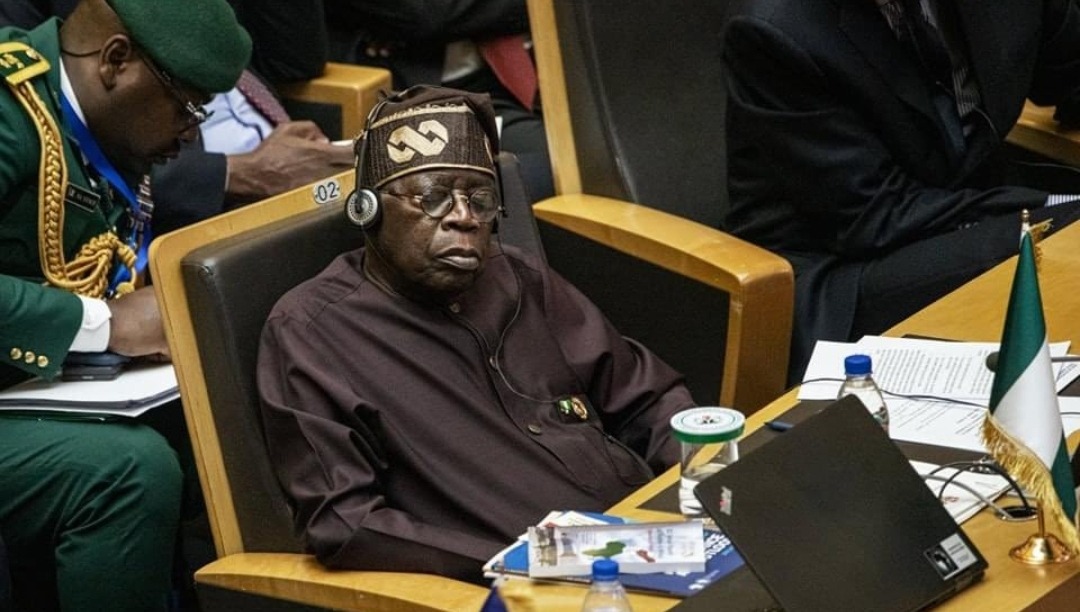Shaibu Accuses Tinubu of Gaslighting Nigerians with “Phony Statistics”
 Phrank Shaibu, the Special Assistant to former PDP presidential candidate Atiku Abubakar, has accused President Bola Tinubu of gaslighting poor Nigerians with what he called “phony statistics.” Shaibu voiced his discontent with the National Bureau of Statistics (NBS), claiming it had allowed itself to become a political tool for the current administration.
Phrank Shaibu, the Special Assistant to former PDP presidential candidate Atiku Abubakar, has accused President Bola Tinubu of gaslighting poor Nigerians with what he called “phony statistics.” Shaibu voiced his discontent with the National Bureau of Statistics (NBS), claiming it had allowed itself to become a political tool for the current administration.
Shaibu specifically questioned how Nigeria’s unemployment rate suddenly dropped from 33.3% to just 5% after the NBS rebased its figures. He was responding to a post by Tinubu’s spokesman, Bayo Onanuga, in which Onanuga touted the administration’s economic progress, including a decline in inflation and food prices.
Onanuga referenced a statement from President Tinubu during the Ramadan dinner in April 2024, where Tinubu expressed optimism about the economy: “I campaigned on HOPE, and I am committed to delivering that HOPE. The economy is looking GOOD… We are reengineering, reclaiming our sovereignty, and restoring Nigeria’s respect on the global stage.”
However, Shaibu pointed out the stark contrast between these optimistic claims and the rising costs of living, particularly the continuous hike in commodity prices despite claims of a drop in inflation. The NBS reported inflation had fallen to 24.48%, but Shaibu found this development questionable, given the persistent price increases Nigerians were facing.
“Not done, the NBS decided to shift its focus to the inflation rate, which had been over 34%, the highest in over three decades,” Shaibu wrote. “Rather than actually do the real work, Tinubu boasted at the budget presentation last December that the inflation rate in 2025 would drop to 15%, which every economist, including Bismark Rewane – who serves in his economic advisory committee – dismissed as overly optimistic.”
Shaibu continued, accusing the NBS of manipulating data to serve the government’s narrative. He pointed out that the unemployment rate, once pegged at 33.3%, dropped dramatically to 5% after the NBS redefined employment to include anyone who works for just one hour a week. According to Shaibu, this redefinition made Nigeria’s unemployment rate nearly identical to that of the United States and the United Kingdom, which he described as “laughable.”
He also criticized the NBS’s latest move to rebalance the Consumer Price Index, which resulted in inflation figures dropping miraculously to 24.48%. Meanwhile, everyday Nigerians continue to feel the pinch as prices for essential goods, such as telecommunications services, rent, and transportation, continue to rise.
Shaibu warned that similar statistical manipulations were likely to follow, with projections claiming that Nigeria’s GDP, which has been severely affected by the naira’s devaluation, will suddenly exceed $600 billion. He cautioned that such inflated projections were part of a broader attempt to present a rosy picture of the economy while poverty continues to worsen for most Nigerians.
Shaibu also criticized the NBS for losing credibility under its new leadership, pointing out that since Yemi Kale’s departure, the agency had succumbed to political manipulation and intimidation, to the point where even its website was no longer functioning properly.
He concluded by advising the Tinubu administration to heed the lessons of Sri Lanka, which faced an economic crisis after releasing fake statistics about inflation and debt. Shaibu warned that such manipulation could lead to a loss of investor confidence and worsen Nigeria’s already dire economic situation.













